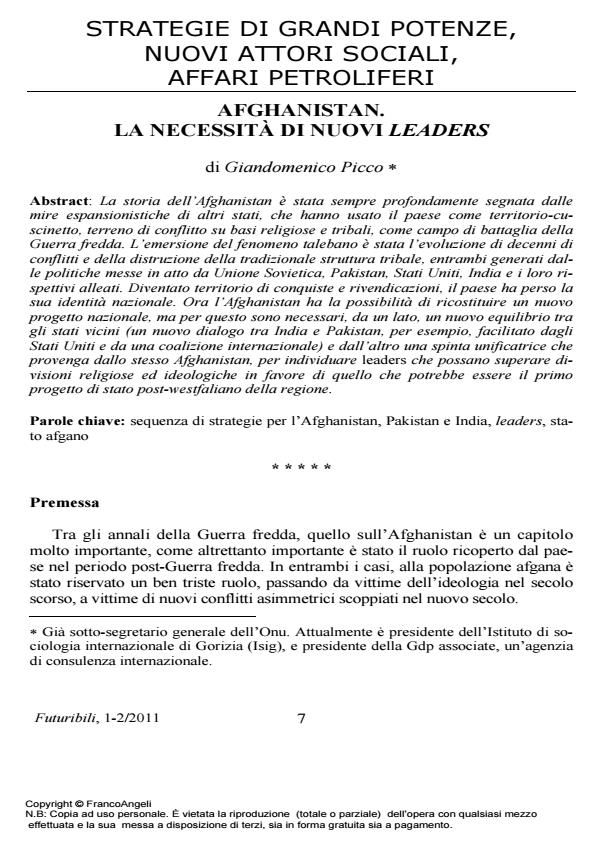Afghanistan. The need for new leaders
Journal title FUTURIBILI
Author/s Giandomenico Picco
Publishing Year 2011 Issue 2011/1-2
Language Italian Pages 12 P. 7-18 File size 270 KB
DOI 10.3280/FU2011-001002
DOI is like a bar code for intellectual property: to have more infomation
click here
Below, you can see the article first page
If you want to buy this article in PDF format, you can do it, following the instructions to buy download credits

FrancoAngeli is member of Publishers International Linking Association, Inc (PILA), a not-for-profit association which run the CrossRef service enabling links to and from online scholarly content.
Afghan history has always been deeply influenced by the expansionist ambitions of other countries, which have used Afghanistan as a buffer state, a terrain of religious or tribal conflict and a Cold War battlefield. The emergence of the Taleban was the result of decades of conflict and the destruction of the traditional tribal structure, both triggered by the policies enacted by the Soviet Union, Pakistan the United States, India and their respective allies. Having become a territory of conquest and contrasting claims, the country lost its national identity. Now Afghanistan has a chance to plan a new national project, but this requires on the one hand a new balance between its neighbouring states (a new dialogue between India and Pakistan, for instance, facilitated by the United States and an international coalition) and on the other a drive for unification within the country itself which can identify leaders able to overcome religious and ideological divisions for the sake of what may be the region’s first project for a post-Westphalian state.
Keywords: Sequenza di strategie per l’Afghanistan, Pakistan e India, <i> leaders </i>, stato Afgano
Giandomenico Picco, Afghanistan. La necessità di nuovi <i>leaders</i>? in "FUTURIBILI" 1-2/2011, pp 7-18, DOI: 10.3280/FU2011-001002